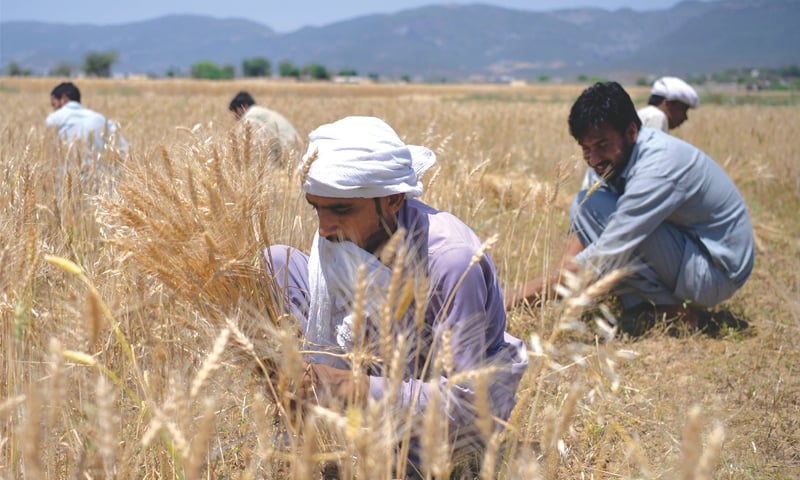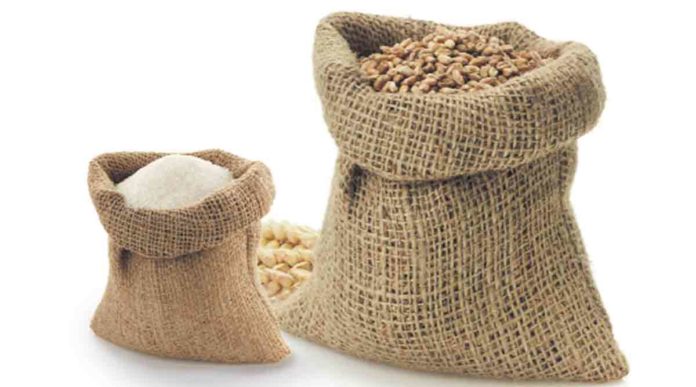Federal Investigation Agency (FIA) has submitted an investigation report into the crisis, this was ordered by Prime Minister Imran Khan in February this year. When the two preliminary inquiry reports were presented to him last Saturday, he ordered them to be made public. The reports pointing to sudden price hikes of sugar and wheat were released immediately without and “alteration or tampering”. The detailed reports will be available by 25 April.
This welcome act of transparency to uncover not only the causes of the crisis but also name the culprits publicly is unprecedented. Previous governments made it a point to suppress inquiry reports in order not to publicly shame the culprits. PM did this despite considerable pressure exercised on him personally, he and the members of the inquiry commission were ‘threatened with dire consequences’. Who in this country has the courage and/ or the ability to threaten the hierarchy of a government in power? Their names should also be made public.
Pakistan’s flour crisis became acute during the second half of 2019, affecting major cities such as Karachi, Hyderabad, and Lahore and with prices shooting up to Rs.70 a kilo in some areas. Despite the ban on wheat export imposed in July 2019, the government allowed exports of 48,000 tons, which fuelled price hike in the country. Over the course of a few months, wheat stocks plunged to approximately 4.2 million tonnes barely enough to meet consumer demand for two months. Simultaneously sugar vanished from the markets resulting in enormous price rise. The price of sugar increased from Rs 55 per kg in December 2018 to Rs. 71.44 per kg in June 2019, despite the fact that General Sales Tax (GST) increase was implemented from July 1, 2019 only. Sugar prices started rising in the local market immediately after the export of sugar was allowed in January 2019. The report also revealed that in the past few years the production of sugar was historically more than the local requirements, therefore it was imperative to probe and include this aspect related to export of sugar including any subsidy given, its impact on local sugar prices and eventually major beneficiaries of such export subsidies. The probe into increase in sugar price by the FIA commission found out that the export of sugar was not justified and the exporters, including prominent members of the ruling Pakistan Tehreek-e-Insaf (PTI), benefitted in two ways by gaining subsidy and then fetching huge profit from the increasing sugar prices in the local market.
Pakistan is an agricultural country that despite its relatively high population growth and the fact that half or even more than half of the population live below or at the poverty line, has historically been able to feed its population. The problem starts when we consider the poverty level, which is rising, that makes it impossible for a considerable part of our population to buy and pay market prices for food stuff. That is why not only food production but even more than that food prices is a matter of national security. When food prices are out of reach for the poor and hungry, law and order situations across the country will be the consequence. In any case that there will be food-led riots in sheer frustration in the coming month of Ramzan, this is not a prediction but certainty going to happen.
Apart from straight security issues like food riots malnutrition is a rather hidden consequence of high food prices. Pakistan has been reported to have one of the highest levels of prevalence of child malnutrition compared to other developing countries. According to the National Nutrition Survey, 33% of all children were underweight, nearly 44% were stunted, 15% are wasted (die early), 50% were anaemic, and 33% have an iron deficiency. Stunting (not growing and developing physically and mentally properly) does not only mean that a child is not having enough to eat. It is about the quantity and quality of diet besides other factors.

This well-known fact has been not given proper attention by successive governments. The next generation, the young people of whom we like to think as representing the future of the country, are not properly developing their physical and intellectual capacities because of nutritional deficits. This is very much a national security issue when our children who will have to compete with others in a globalized world are handicapped in such a way from childhood.
The outfall of creating artificial food shortages and price rises with the malafide intention to make extra money out of the plight of the public is thus a heinous criminal act. This crisis was created by wrong administrative decisions motivated mostly by the greed to make money that PTI related sharks went to the detriment of their own government was unpreventable.
Pakistan’s well developed system of intelligence agencies are supposed to keep tabs on the pulse of society and provide intelligence about what is going on and who is behind it. It is quite unbelievable that information about things going wrong should have been delivered to the respective government offices at an early stage so as to act timely to prevent a crisis. One finds it quite shocking that the reports were ignored and for what motivation? There is a need for another commission looking into this aspect of the matter and naming the responsible people.
The PM has promised to hold the culprits named in the reports accountable when the forensic reports are delivered by 25 April. To start with they must pay back the subsidies paid under false premises and to pay a substantial fine that could be used to fight coronavirus or pay for the ration packages. Imran Khan must hold people involved into this scam accountable across the board, otherwise impartial accountability and accusations of political victimization would come up in no time. The culprits are members of PTI or coalition parties, apart from the monetary gain have harmed their own government and party politically. This has to be dealt with decisively within the parties. The matter of the wheat and sugar crisis shows that across the political board there are people do not care about Pakistan’s national interest is and even their love for our country can be doubted. On the other hand, Imran Khan’s bravery to investigate and publish the sources of this scam despite all the pressures must be acknowledged. He has proven that he is honest and sincere in his efforts. That does not exclude his making mistakes but it would be an honest mistake unintentional and without personal gain. That is what Pakistan needs.




